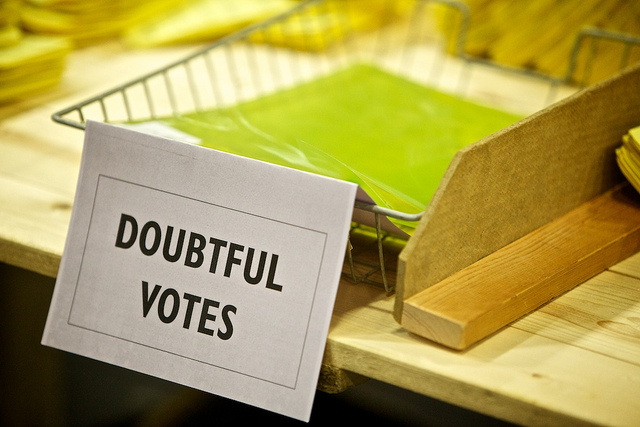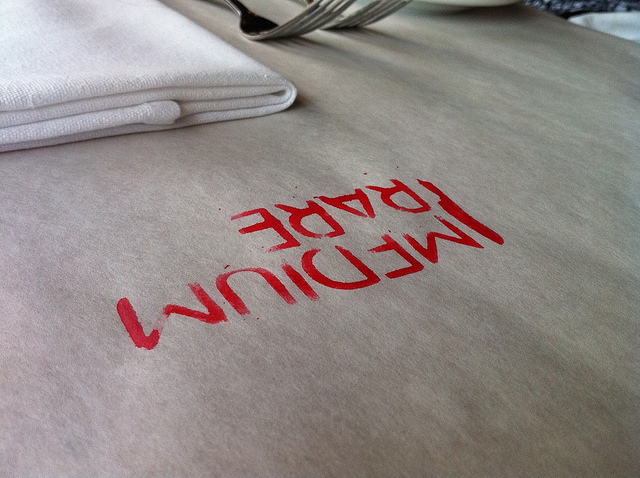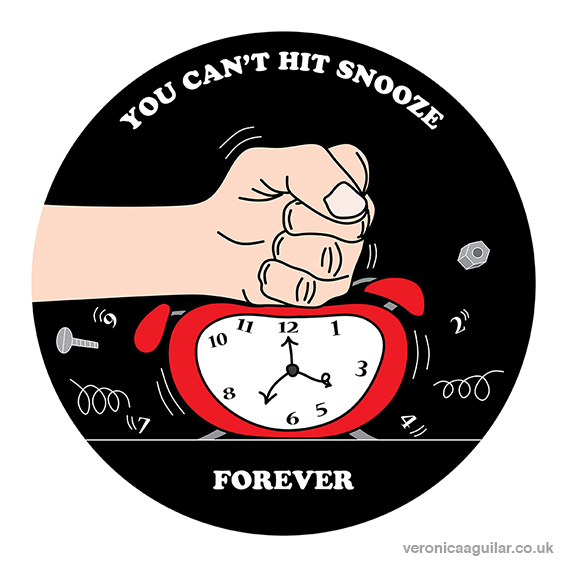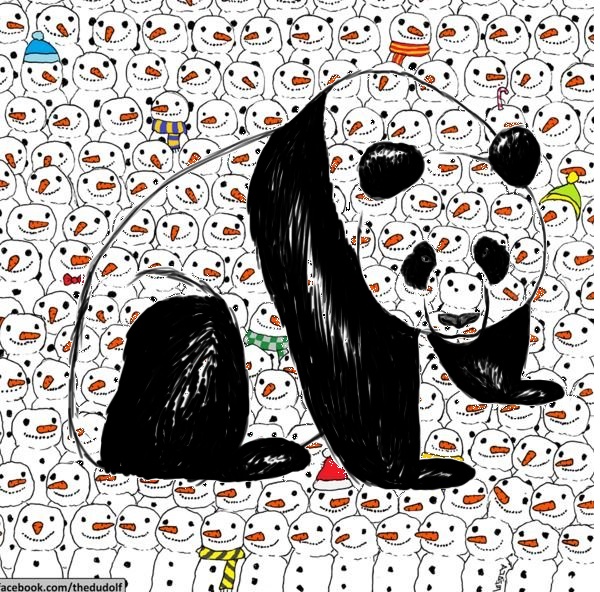
Disclosure Geeks Rejoice: New FTC Rules on Advertorials
Over the last few years, many folks have noticed a rise in the use of advertor.. oh wait, we’re supposed to call it “native advertising” now. As with anything new that comes along in the “social media age,” it is hardly new, as paid content has long been a part of publications both print and online. Concerns over recent examples of native advertising has led to calls to stiffen enforcement over deceptive practices, whether intentional or not. I don’t know if this new FTC document represents stiffer enforcement, but it clarifies existing positioning and gives publishers a fresh referral source.
“Tl/dr” is no excuse for not knowing the rules, but to those for whom clicking a link is greater editorial effort than they might normally exert, here is the concluding paragraph from the FTC’s new statement:
Although digital media has expanded and changed the way marketers reach consumers, all advertisers, including digital advertisers, must comply with the same legal principles regarding deceptive conduct the Commission has long enforced. This statement sets forth principles of general applicability on which the Commission will rely in determining whether any particular advertising format is deceptive, in violation of Section 5 of the FTC Act. The Commission will find an advertisement deceptive if the ad misleads reasonable consumers as to its nature or source, including that a party other than the sponsoring advertiser is its source. Misleading representations of this kind are likely to affect consumers’ decisions or conduct regarding the advertised product or the advertisement, including by causing consumers to give greater credence to advertising claims or to interact with advertising content with which they otherwise would not have interacted.
I would love to see more enforcement of online disclosure gaffes of all kinds, as I have contended for a time that many people who know better are doing it wrong, and I’m not sure how much that has changed.

Polls and Data: the Rush to Judgment May Cause Dizziness, Nausea
As politics becomes a great reason to run and hide from social media over the next year, there is something more insidious than boorish attachment to easily-discredited opinions or policies (like defending a high school team mascot many Native americans find racist by opening with the phrase “Time to circle the wagons,” but I digress…). This, of course, is the tendency to jump on a single poll, months before any primary vote will be cast, and present it as infallible evidence that your favored candidate will win everything, “BEKAUZ POLL!”
In my observation, Bernie Sanders supporters have been among the worst offenders. Just in the past week, I saw folks touting a single Quinnipiac University poll that has Democratic candidate Sanders defeating Republican Donald Trump by 13 percentage points in the general presidential election.
The headline, “In blockbuster poll, Sanders destroys Trump by 13 points,” is directly from “The Hill,” so remember that established publications are not immune to hyping the unknowable.
Political polls are a lot like marketing analytics. Well, a little like them, in that you cannot take the data point you like and run with your preferred conclusions. In this case, a single poll is a foolish pillar on which to build a prediction. Aggregate polls from many different sources, while not necessarily any more accurate, at least pull in more viewpoints, methodologies and raw numbers into consideration. i like to go to Real Clear Politics to see an overview of polling numbers. Also consider the aforementioned months before anyone has a chance to cast any form of vote, and the fact that the poll pits two candidates who may not make it out of the primaries, let alone party conventions, to make touting a single poll as “blockbuster” to be laughable.
The kneejerk typepad of Facebook and the rest of the social web makes these kinds of reactions much more common. It is, as always, up to the consumer to be discerning and read the trends, as well as the sources, behind the numbers.

Medium Rare
I’ll be brief about this one. Ev Williams, founder of Medium (and before that Twitter and Blogspot), advocates that publishing on the web (your own sites) will make less sense, and publishing on platforms with built-in audiences are the future (but what example of such a utopian future may we suggest? How about…Medium?).
The answer for you in this lies, however, in your goals. if you need people to go to your site, then that is where you should publish, and use Facebook/Twitter/Medium to drive people there with good content (not to mention other people’s Web sites).
Meanwhile, the comments by Williams elicited a passionate response from Dave Winer on his Scripting News blog. Both links in this segment are worth a look.

The Alarm Clock Conundrum
My friend Beth Kanter wrote about how she has stopped using her smartphone as an alarm clock, citing a study that shows phones and tablets disrupt sleep patterns. In my quest to use fewer devices (including losing the old-fangled alarm clocks and cutting down on paper books) and defend the continued presence of my phone on my nightstand, I had a quick read of the study. My take? The study seems to be predicated on the idea that screens are not dark at night, but light up with notifications and whatnot. It never occurs to me that, once I’m ready to go to sleep, that my phone should light up, buzz or disrupt me for any reason. Notifications are off, the screen is dark, and the next noise is from my alarm. Am I missing something, that people keep their notifications on at night? I can see how that would be a problem, but if that’s all it is, it’s easily fixed without making the device the problem.
I Fixed the Panda Photo
The week before Christmas, a drawing featuring a bunch of snowmen and one panda circulated heavily on Facebook and elsewhere. I had trouble finding the panda after a thorough 15-second search, so I just went ahead and fixed it.
The crazy part is, once I hilariously superimposed the panda, the panda I was half-heartedly looking for became much easier to spot, something I swear I did not intend but was helpfully pointed out to me by a friend.

Hi Doug,
First, let me wish you a happy, healthy New Year! And thanks for the link to the post …
What I got out of the study was this point:
“Our study shows that a two-hour exposure to light from self-luminous electronic displays can suppress melatonin by about 22 percent. Stimulating the human circadian system to this level may affect sleep in those using the devices prior to bedtime.”
It is the melatonin suppression that can disrupt sleep, not being awakened in the middle of the night by notifications.
I had turned off all notifications on my phone and use the do not disturb for phone calls/texts, so getting awakened in the middle of the night was not my problem.
It was my bad habit of looking at email and news after setting the alarm – for too long. That disrupts sleep. Plus, immediately after the alarm went off, like Pavlof’s dog – I checked email – not a great way to start your day.
If you keep the phone on your bed stand near your head, there is also danger of radiation – at least according to this: http://www.saferemr.com/2014/09/iphone-6-sar-radiation-levels-and.html
So, I kicked that habit over a week ago – and feel much better with a morning ritual that is about getting up and not immediately dealing with devices and going for a walk. Habit change is hard, but this one I’m glad I started. Hope I can continue it into 2016
Anyway, fodder for my next book, “Happy Healthy Nonprofit” –
Thanks Beth- I totally agree with you about the morning ritual and the facebook/email checking at night. I suppose I equate that to some extent with reading a book (which I usually do with a kindle app anyway) before nodding off, but again, a good point.
I’m not so sure about the radiation thing, but I guess we don’t really know…